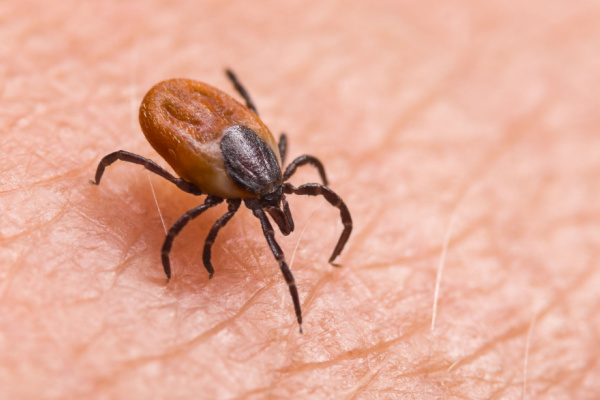One of the most feared pests is the tick. These tiny bugs can cause life-long health issues for humans and pets, so understanding what they are, when they’re most active, how to protect yourself, and how to prevent them from infesting your property is very important. Getting professional pest control specialists involved to protect yourself and your property is a smart move when it comes to ticks. Since they’re so hard to spot, preventing their presence as much as possible is the best course of action. Let’s learn a little more about ticks and how they operate.
What are Ticks
Ticks are actually related to spiders. They have eight legs and are incredibly small, growing only to about the size of an appleseed when fully fed. Because of their small size, they’re pretty hard to spot. Like many other pests, there are a variety of ticks but many of them can cause serious diseases like Lyme or Rocky Mountain spotted fever.
Ticks live in wooded areas, tall grass, leaf piles, or simply overgrown patches in your yard. They can also settle in bird feeders and woodpiles. They love shady and moist areas and typically stay at ground level. You don’t have to go far to find ticks, which makes understanding their behavior and protecting yourself crucial.
When are Ticks Most Active
Since Arizona’s climate is warm, ticks are active nearly year-round. In Arizona, the tick season typically starts in April and lasts through October, which is a lot longer than much of the country. Because the season is so long, it’s important to treat before, during, and after to protect yourself and your property.
Pest control specialists can devise a plan to treat your property for ticks before they become a problem and ideally before they become most active for the season.
How Can Ticks Impact You
While tick-borne diseases are relatively rare in Arizona, the one that is most commonly found is Rocky Mountain spotted fever. RMSF is bacterial and causes headaches, fever, and a rash. This tick-borne disease can be deadly if it isn’t treated early and with the right medicine. If not treated appropriately, RMSF can cause clotting issues, bleeding in the brain, and circulation problems resulting in necessary amputation.
Treating RMSF is critical, but preventing it completely is ideal. Ticks can also impact your four-legged friends with this tricky disease. Treating your property is key in preventing a tick problem at your property.
Ways to Prevent Ticks and Tick Bites
Preventing ticks from living on your property is nearly impossible without professional help. However, there are a few best practices to follow when it comes to property maintenance.
- Keep grass trimmed on a regular schedule. Since ticks love tall grass, it’s crucial to maintain your lawn.
- Keep tall grass and brush cleared near the edge of your lawn.
- Use a woodchip or gravel barrier of at least three feet between lawns and wooded areas or around patios and play areas.
It’s also important to protect yourself from tick bites is something you can do on your own. Here are a few ways to protect yourself from tick bites:
- Wear long sleeves and pants when in tall grass or when working in the garden.
- Use scents like lemon, lavender, cinnamon, orange, and peppermint on yourself. Ticks hate these smells, so you can either buy premade spray or make your own tick spray using essential oils. You can also use commercial insect sprays to ensure protection.
- Always check yourself for ticks after hiking, working in the garden, or even being out in the yard.
Tick Control in Arizona
The professionals at SOS Exterminating have been helping residents and business owners with pest problems since 1937. We build long-lasting relationships with our clients through personal care and partnership. If you have a pest question or pest problem, contact us right away so we can assess and assist!
Tick Season: When is the Prime Time to Expect Tick Bites Professional Pest Control Services in Gilbert, AZ?
Serving Maricopa County | Pima County | Yavapai County | Coconino County | Pinal County

 480-497-1500
480-497-1500 
